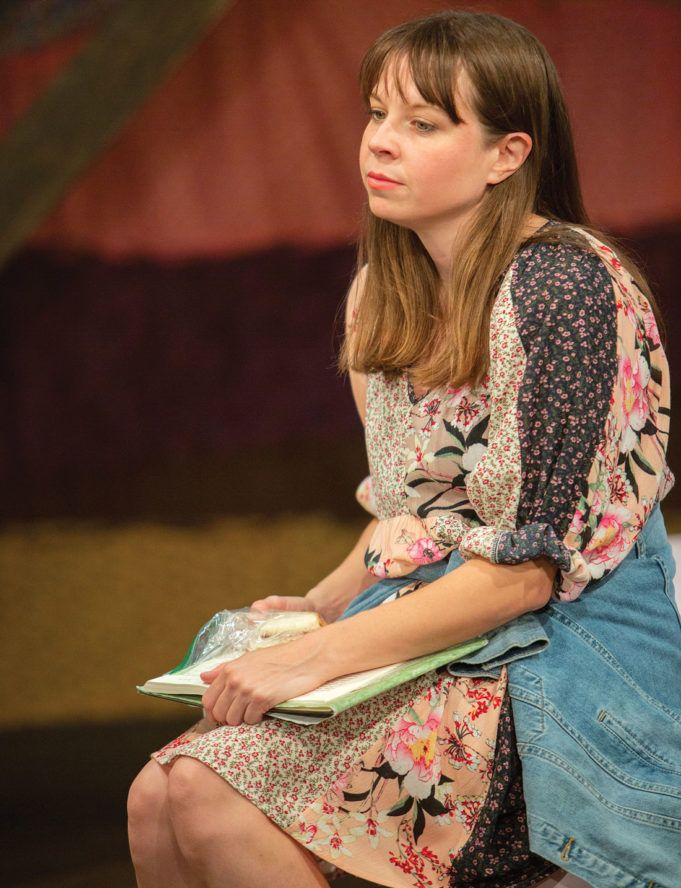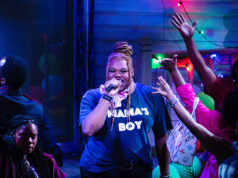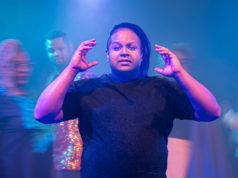Circle Theatre closes its season with a world premiere, and it’s always worth noting when one of our local theater troupes is privileged enough to break out a piece that is truly new. No sitting through songs you’ve heard a dozen times before. No having your view of the performances obscured by memories of the famous actors who’ve played the parts before. SMU graduate and professor Blake Hackler chose North Texas to premiere his latest play, What We Were, with Dallas’ Second Thought Theatre collaborating with Circle and putting it on last month before transplanting the production to our side. This show about three sisters in rural East Texas often proves frustrating, but it has its moments of considerable power.
The story begins with the three Brown sisters at ages 6 through 13 growing up in East Texas and fighting over which character on Dynasty they get to portray in their bedroom before their father calls one of them over. As the scenes unfold from over the next 31 years, we start to assemble the full picture: All of them are raped by their father when they are still children, and when youngest sister Tessa (Jenny Ledel) tells someone about it, her siblings lie to protect him, saying she has an overactive imagination. Later in life, while eldest sister Carlin (Lydia Mackay) remains deep in denial, middle sister Nell (Jessica D. Turner) is overwhelmed with guilt and tries to track down Tessa after she leaves home. She finally finds 37-year-old Tessa in a jail cell in Seattle, where she’s going by the name of Jessica and believes she’s still 17. She’s making plans for what to do after she graduates from high school.
OK, so we have an extreme case of arrested development placed alongside two sisters who are dealing with less exotic repercussions from the trauma that they all suffered when Daddy invited them for individual sleepovers in the barn on the family property. With this setup, I kept having this nagging feeling that the material should work better than it does. Maybe it’s because the setting so often makes this play like warmed-over Steel Magnolias, injected with a generous dose of poison-at-the-heart-of-small-town-America malaise that you find in Sam Shepard and Tracy Letts. The way the narrative jumps around in time is meant to comment on how the sisters’ shared abuse flows into their adult lives and how the past is never really gone, and yet the overall effect is more often just confusing, as we wonder when and where we’re supposed to be with each new scene. Perhaps more traditional scene changes and maybe even a more linear timeline would have made all of this less jarring.
The major reason to see the show is the acting. Turner and Mackay are fine, and Benjamin Stegmaier makes a sharp impression as an 18-year-old boy in Washington State who falls for “Jessica” and her delusion that she’s still a teenager. However, the show belongs to Ledel. The temptation must have been great to overplay the scenes in which “Jessica” behaves like a teenager, but that would have made them too similar to the ones in which Tessa truly is that age. Instead, Ledel plays her as jaded, weary, and tightly wound from the effort of maintaining this constructed persona that keeps the pain at bay. This is a truly remarkable performance, and it lights up what could have been a gloomy theatrical experience. It’s a star turn that demands to be seen.
Thru Oct 19. Circle Theatre, 230 W 4th St, FW. $15-38. 817-877-3040.












